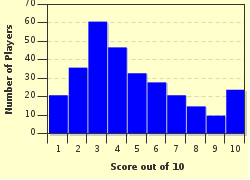Quiz Answer Key and Fun Facts
1. Bob Dylan was scheduled to perform on "The Ed Sullivan Show" in May, 1963. He declined the invitation after they told him that the song he selected to perform was unfit to broadcast and asked him to select another number. Which song caused Dylan to simply leave the studio?
2. Which Beatles tune was banned for a while in 1969 by the BBC because of a supposed referenced to drugs?
3. What reason did the BBC give for removing the Kinks song, "Lola", from airplay in 1970?
4. In 1957 KFX Disc Jockey Al Priddy of Portland, Oregon, was fired for playing Elvis Presley's version of which holiday song?
5. In 1966 Chicago radio station WLS banned the song "Gloria" from airplay citing objectionable lyrics. Which group released the original version of "Gloria?
6. Which Rolling Stones song did Chicago Mayor Richard Daley prohibit local radio stations from playing in the summer of 1968?
7. In 1975 the Country song, "The Pill", was banned by many radio stations across the US because of the obvious reference to birth control. Who recorded the controversial song?
8. In 1968 the British retailer W.H. Smiths refused to stock Jimi Hendrix's double album, "Electric Ladyland". What reason did they cite for refusing to carry the LP?
9. In 1971 New York station WNBC would not play "One Toke Over the Line" because of purported drug references. Which duo recorded the song?
10. In 1985 South Africa radio stations banned playing any of Stevie Wonder's recordings. Which action by Stevie prompted the ban?
Source: Author
shanteyman
This quiz was reviewed by FunTrivia editor
ralzzz before going online.
Any errors found in FunTrivia content are routinely corrected through our feedback system.

